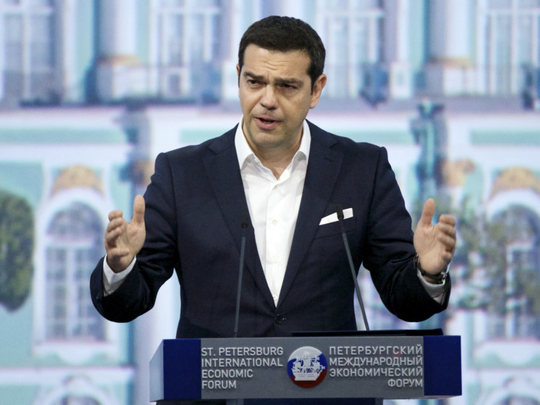
‘Athens will either reach an agreement with its creditors, or default on billions of its debts. Given Greek banks’ dependence on funding from the European Central Bank, default could then push Greece out of the Eurozone. After that, nobody can be sure what would happen,” observed the Financial Times in an editorial. “Such chaos would also deal a wounding blow to the European ideal that has spread stability and prosperity across the continent over the past decades ... No European leader worthy of the name should want such an outcome, let alone will its occurrence,” it said. Dwelling on the widely fancied possibility of a Grexit, the newspaper also underscored an outcome which it said was worse than Grexit — “that is a botched rescue that merely postpones it, wasting Europe’s scarce political and financial capital”.
Examining the fundamental factors behind the crisis, the paper said: “Under the shelter of the euro, and fed by streams of EU structural aid, Greece’s clientelism grew worse ... Syriza, for all its professed outrage at the oligarchy dominating its economy, has shown little resolve for tackling it. Its resistance to reform betrays a contempt for market forces. If unwilling to concede on VAT and pension reforms, Mr Tsipras must offer something better: ideally, to break the cartels that hold back the Greek economy.”
The Daily Telegraph, meanwhile, attempted to place the Greek crisis in the larger European perspective. “The Greek debt crisis is now five years old, and still there is no workable settlement in sight. One apparent denouement follows another, lending Europe a sense of permanent crisis and conflict, not so dissimilar to an outright war, at least in terms of the entrenched positions adopted and the vitriol of the language,” it said in an editorial.
“While much weightier matters, such as mass unemployment, the influx of illegal immigration, and the sabre rattling at European borders from Putin’s Russia, go unaddressed, tiny little Greece has become an all consuming diversion, monopolising the time and energies of political leaders and tearing at the very heart of the European project,” the newspaper said.
The New York Times weighed in with similar sentiments. Noting that a crucial Eurozone meeting last week collapsed in rancour, the newspaper warned in an editorial: “After five years of this, the world can be forgiven for not heeding the serial cries of ‘wolf’. Only this time, there really is a wolf at the door.”
It also stressed that while default was a real possibility on June 30, “Greeks are draining their bank accounts as fast as they can. A record 1 billion euros was withdrawn [last] Thursday alone, putting major banks in danger of collapse”. Striking a more dramatic note, the Guardian said: “Greece could soon steer into a long, dark tunnel with only the faintest glimmer of light at the end. Outside the euro, Greece could find itself without the means to pay for basic imports like fuel and medicine.”
However, an editorial in the newspaper also found reasons enough for optimism, though with a caveat: “After a while inflation should start to eat into debts, and a cut-price drachma should lure extra tourists: therein lies that glimmer of light. The difficulty, however, is that to lock in its new competitive edge, Greece would have to run its economy well and increase the efficiency of its industry.”





_resources1_16a31069e4e_small.jpg)






